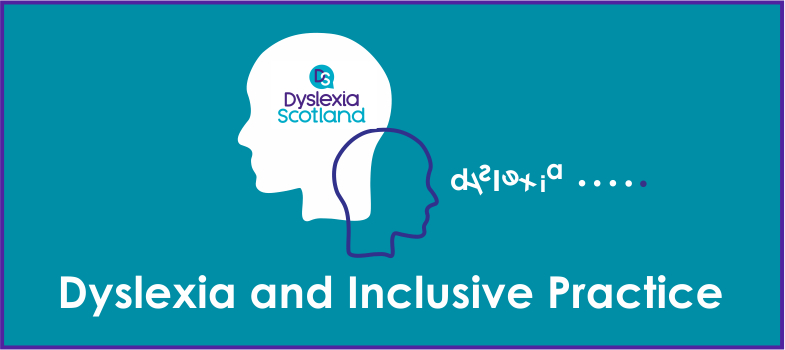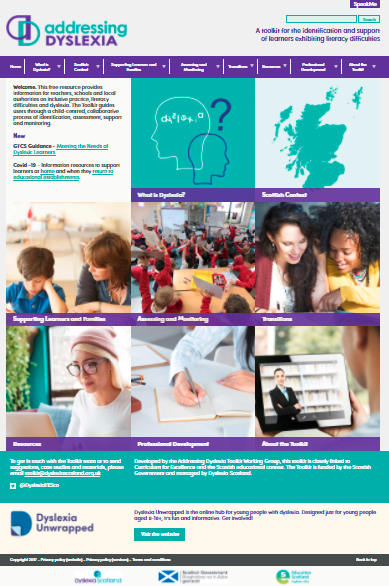5.1. Professional learning to support dyslexia and inclusive practice
A range of professional activities can contribute towards professional learning, for example:
- Professional reading and enquiry
- Meetings with colleagues
- Attending events
- Online courses
- Short courses
- Extended courses and award-bearing courses
In this section, we explore some of the free resources and information available to support Professional Learning.
The Scottish Government and Education Scotland, working with partners on the Making Sense Programme, have supported the development of free professional learning resources, some of which are highlighted below. These free resources have been developed to provide up-to-date practical advice and guidance and to support the understanding of dyslexia and inclusive practice. Aimed at staff from Early Learning and Childcare (ELC) settings, schools and local authorities, they provide an awareness of:
- What dyslexia is
- Its impact
- How dyslexia can be supported within an inclusive school community
- How to reflect on and evaluate inclusive practice which supports all learners, including those with dyslexia
- The Addressing Dyslexia Toolkit [Tip: hold Ctrl and click a link to open it in a new tab. (Hide tip)] – a free online resource funded by the Scottish Government. Developed to support educational professionals it provides information on dyslexia, literacy difficulties and inclusive practice.
- Education Scotland – A range of resources are available on Dyslexia and Inclusive Practice - An Overview within the National Improvement Hub. For example:
- Literacy Circles – Reading and Writing
- Professional Learning Resource for Dyslexia and Inclusive Practice – a reflective and evaluative tool.
- Route Map for Dyslexia and Inclusive Practice.
The Addressing Dyslexia Toolkit
The Addressing Dyslexia Toolkit is a free online resource designed for educational professionals in early years and childcare settings, schools and local authorities to provide information and guidance on supporting learners with dyslexia. The various sections can support staff to examine their own knowledge and understanding of dyslexia and to use the information to improve their practice and to develop appropriate identification pathways and support approaches. The Toolkit is maintained by a working group and managed by Dyslexia Scotland.
Dyslexia Scotland
Dyslexia Scotland is a national charity that aims to enable people with dyslexia to reach their potential in education, employment and life. It exists to support people with dyslexia as well as those who support them. Educators can make use of Dyslexia Scotland’s services, including: their Helpline, websites and social media, publications, membership, Branch events across Scotland, Education conference and other events, dyslexia awareness training and advice.
CALL Scotland
CALL provides information and advice on technological aids for communication and learning to professionals, carers and disabled people themselves. They support children and young people across Scotland to overcome disability and barriers to learning.
Below are some of the CALL websites which will provide you with very helpful information to support your own professional practice and understanding of how to provide an accessible curriculum for your pupils.
The Scottish Government and Education Scotland
In recent years the Scottish Government and Education Scotland have supported dyslexia reviews and a range of positive initiatives for school and local authority staff to help them support children and young people with dyslexia to achieve parity of academic attainment and wellbeing with their peers.
Activity 13 Reflective Log
Take a few minutes to review the information above - you may choose to access the highlighted websites. Use your Reflective log to plan how to make use of these resources.
Now try the formative quiz 2 to consolidate your knowledge and understanding from this section. Completing the quizzes is part of gaining the digital badge, as explained in the Module overview.
5. Professional learning

